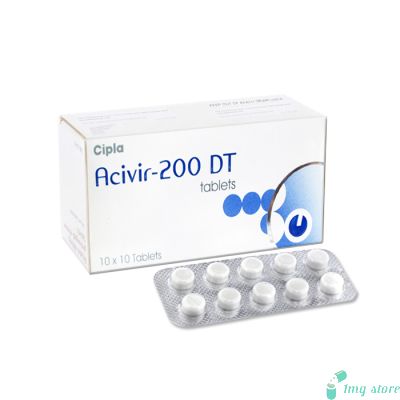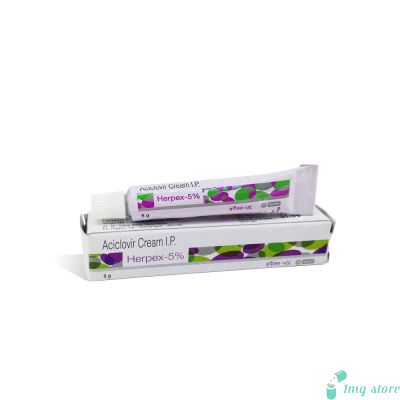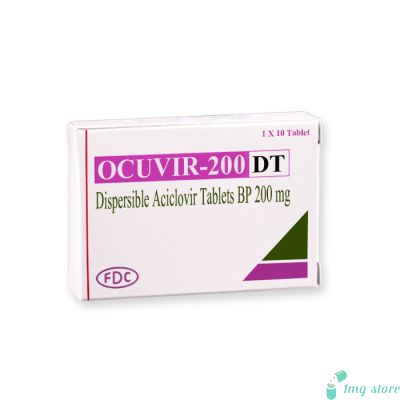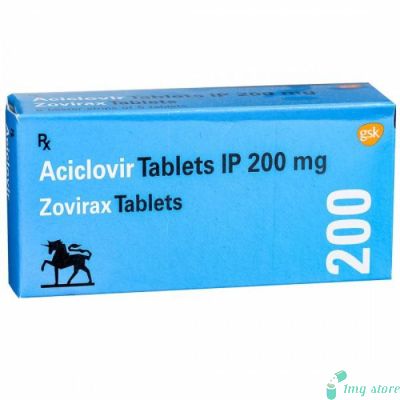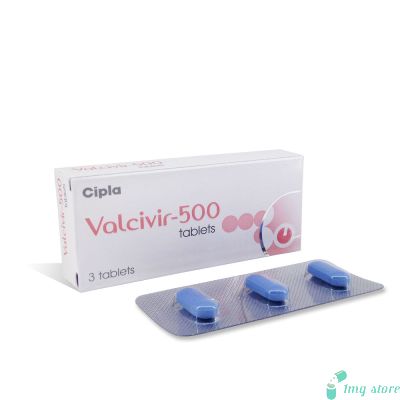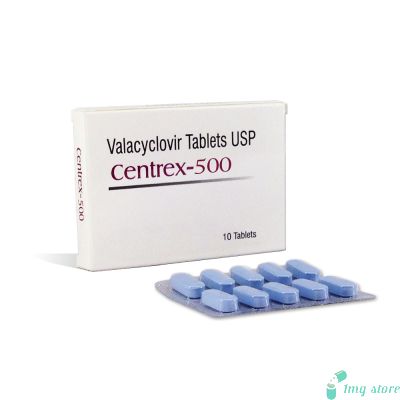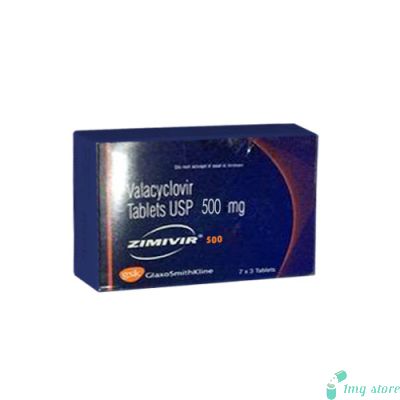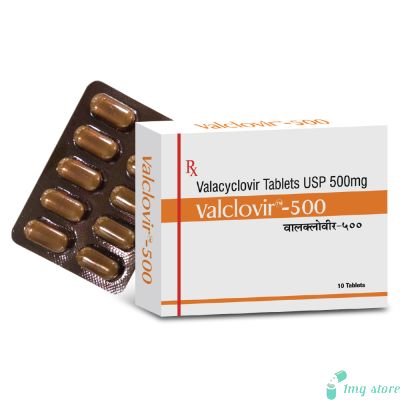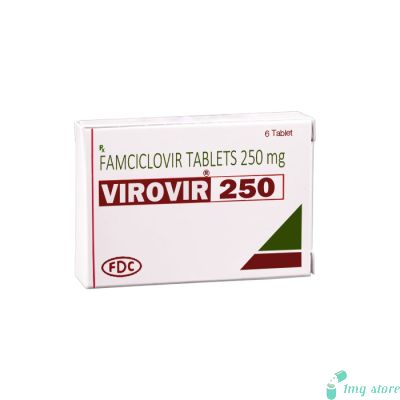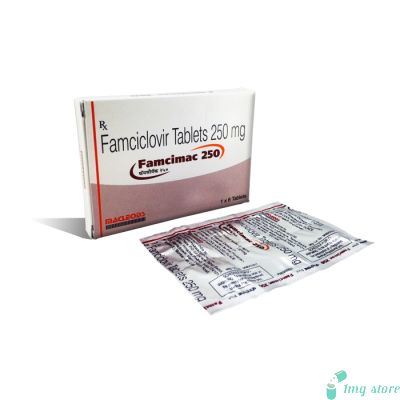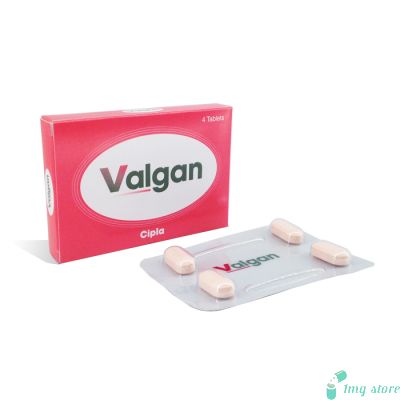Acivir Cream is a topical medication that contains the active ingredient acyclovir. It is primarily used to treat viral infections caused by the herpes simplex virus, including cold sores (herpes labialis) and genital herpes (herpes genitalis).
Acyclovir, the main component of Acivir Cream, belongs to a class of antiviral drugs called nucleoside analogues. It works by inhibiting the replication of the herpes virus, thereby reducing the severity and duration of outbreaks.
When applied topically, Acivir Cream targets the affected area directly, providing localized relief and promoting faster healing. It can be used on the lips, face, or genitals as directed by a healthcare professional.
To use Acivir Cream, it is important to follow the instructions provided by your doctor or pharmacist. Generally, a thin layer of cream should be applied to the affected area five times daily, at approximately four-hour intervals. Treatment usually lasts for about four days, but the duration may vary depending on the specific condition being treated.
Before using Acivir Cream, inform your healthcare provider about any allergies, medical conditions, or medications you are currently taking. It is important to note that Acivir Cream is for external use only and should not be ingested or applied to open wounds.
Common side effects of Acivir Cream may include mild burning or stinging at the application site. If you experience severe or persistent side effects, it is advisable to seek medical attention.
Remember, this information is a general overview of Acivir Cream. Always consult your healthcare provider for personalized advice and recommendations regarding your specific medical condition.
Acyclovir cream, such as Acivir Cream, offers several benefits in the treatment of viral infections caused by the herpes simplex virus. Here are some key benefits:
Antiviral action: Acyclovir cream is specifically designed to combat herpes simplex virus infections. It works by inhibiting the replication of the virus, thereby reducing the severity and duration of outbreaks. By targeting the virus directly, it helps to control and manage symptoms effectively.
Relief of symptoms: Acyclovir cream provides localized relief by soothing the affected area. It can help alleviate symptoms such as itching, burning, pain, and discomfort associated with cold sores or genital herpes outbreaks.
Faster healing: By inhibiting the replication of the herpes virus, Acyclovir cream promotes faster healing of lesions or sores. It can help reduce the duration of outbreaks, allowing the skin to heal more quickly and minimizing the risk of spreading the infection.
Decreased transmission risk: Using Acyclovir cream as directed can help reduce the risk of transmitting the herpes simplex virus to others. By managing and controlling outbreaks effectively, it minimizes the chances of viral shedding and transmission to sexual partners or close contacts.
Convenient topical application: Acyclovir cream is applied directly to the affected area, providing localized treatment. The cream is easy to use and can be applied at home without the need for medical supervision, although it's always recommended to follow the instructions provided by your healthcare professional.
Minimal systemic absorption: When applied topically, the systemic absorption of Acyclovir cream is low. This means that the majority of the medication stays at the site of application, reducing the risk of systemic side effects compared to oral antiviral medications.
It's important to note that while Acyclovir cream can effectively manage symptoms and promote healing, it does not cure herpes infections. It helps control outbreaks and alleviate symptoms but does not eliminate the virus from the body.
When using Acyclovir cream, it is important to take certain precautions to ensure safe and effective treatment. Here are some precautions to keep in mind:
Allergies: Before using Acyclovir cream, inform your healthcare provider if you have any known allergies, especially to acyclovir or any other ingredients in the cream. Allergic reactions can range from mild skin irritation to severe symptoms, so it's crucial to be aware of any potential allergies.
Medical history: Discuss your medical history with your healthcare provider, including any kidney problems or weakened immune system conditions. Acyclovir cream may require dose adjustments or additional monitoring in individuals with certain medical conditions.
Proper application: Follow the instructions provided by your healthcare professional or the product label carefully for the correct application of Acyclovir cream. Apply a thin layer of the cream to the affected area as directed, avoiding contact with the eyes, mouth, or inside the nose.
Avoid contact: To prevent the spread of infection, avoid touching or scratching the affected area and avoid close contact with others, especially during active outbreaks. Wash your hands thoroughly before and after applying the cream.
Avoid mucous membranes: Acyclovir cream is for external use only and should not be applied to mucous membranes, such as inside the mouth, vagina, or rectum. If accidental contact occurs, rinse thoroughly with water.
Sexual activity: It is advisable to avoid sexual activity while having an active outbreak of genital herpes. However, if sexual activity does occur, it is important to use appropriate precautions, such as condoms, to reduce the risk of transmission to your partner.
Adverse effects: While rare, some individuals may experience adverse effects from Acyclovir cream, such as severe skin irritation, allergic reactions, or systemic side effects. If you experience any unusual or severe symptoms, discontinue use and seek medical attention.
Pregnancy and breastfeeding: If you are pregnant, planning to become pregnant, or breastfeeding, consult your healthcare provider before using Acyclovir cream. They can provide guidance on the potential risks and benefits in your specific situation.
Remember, these precautions are general guidelines, and it is important to consult your healthcare provider for personalized advice based on your individual circumstances and medical history.
Acyclovir cream has several uses in the treatment of viral infections caused by the herpes simplex virus. Here are the primary uses of Acyclovir cream:
Cold sores (Herpes labialis): Acyclovir cream is commonly used to treat cold sores, which are caused by the herpes simplex virus type 1 (HSV-1). When applied at the first sign of a cold sore, it can help reduce the severity and duration of the outbreak.
Genital herpes (Herpes genitalis): Acyclovir cream is also used to treat genital herpes, which is caused by the herpes simplex virus type 2 (HSV-2). It can help alleviate the symptoms of genital herpes outbreaks, including pain, itching, and sores, and promote healing.
Recurrent herpes labialis: Acyclovir cream may be prescribed for individuals who experience frequent or recurrent cold sores. Regular application of the cream during prodromal or early stages of an outbreak can help prevent the cold sore from developing further.
Suppressive therapy: In some cases, Acyclovir cream may be used as part of a suppressive therapy regimen to reduce the frequency and severity of herpes outbreaks. This approach involves applying the cream regularly, even when no active outbreak is present, to help control the virus and minimize the occurrence of outbreaks.
It's important to note that Acyclovir cream is not effective against other types of viral infections or non-herpes-related skin conditions. Always consult with your healthcare provider for a proper diagnosis and personalized treatment plan for your specific condition.
Like any medication, Acyclovir cream may cause side effects in some individuals. Here are some potential side effects that have been reported:
Mild skin irritation: The most common side effect of Acyclovir cream is mild skin irritation at the application site. This may include burning, stinging, itching, or redness. These symptoms are usually temporary and should improve as your skin adjusts to the medication.
Allergic reactions: Although rare, some individuals may experience allergic reactions to Acyclovir cream. Signs of an allergic reaction may include hives, rash, swelling, severe itching, dizziness, or difficulty breathing. If you develop any of these symptoms, discontinue use of the cream and seek immediate medical attention.
Systemic side effects: Since Acyclovir cream is applied topically, it generally has minimal systemic absorption and is less likely to cause systemic side effects. However, in some cases, particularly if large amounts of the cream are used or if it is applied to a large area of the body, systemic side effects such as headache, dizziness, or nausea may occur.
It's important to note that this is not an exhaustive list of side effects. Some individuals may experience other side effects not listed here. If you notice any unusual or bothersome symptoms while using Acyclovir cream, it is advisable to consult your healthcare provider.
Remember to always follow the instructions provided by your healthcare professional or the product label when using Acyclovir cream. If you have any concerns or questions about potential side effects, speak with your healthcare provider for further guidance.
Q: What is Acyclovir cream used for?
A: Acyclovir cream is primarily used for the treatment of viral infections caused by the herpes simplex virus, including cold sores (herpes labialis) and genital herpes (herpes genitalis).
Q: How does Acyclovir cream work?
A: Acyclovir, the active ingredient in the cream, belongs to a class of antiviral drugs called nucleoside analogues. It works by inhibiting the replication of the herpes virus, thereby reducing the severity and duration of outbreaks.
Q: How should I apply Acyclovir cream?
A: Follow the instructions provided by your healthcare professional or the product label. Generally, a thin layer of cream should be applied to the affected area five times daily, at approximately four-hour intervals. It is important to wash your hands before and after applying the cream.
Q: How long should I use Acyclovir cream?
A: The duration of treatment with Acyclovir cream may vary depending on the specific condition being treated. Typically, treatment lasts for about four days. However, it is important to follow the instructions provided by your healthcare provider for the recommended duration.
Q: Can I use Acyclovir cream on open wounds?
A: No, Acyclovir cream should not be applied to open wounds. It is intended for external use only and should be applied to the affected area as directed. If you have any open wounds or broken skin, consult your healthcare provider for appropriate treatment options.
Q: Can Acyclovir cream cure herpes infections?
A: Acyclovir cream helps manage outbreaks, alleviate symptoms, and promote healing, but it does not cure herpes infections. It targets the virus to control and reduce the severity of outbreaks, but the virus remains in the body.
Q: Are there any side effects of Acyclovir cream?
A: The most common side effects of Acyclovir cream include mild burning or stinging at the application site. However, severe or persistent side effects are rare. If you experience any unusual or severe symptoms, discontinue use and seek medical attention.
Q: Can I use Acyclovir cream during pregnancy?
A: If you are pregnant, planning to become pregnant, or breastfeeding, it is important to consult your healthcare provider before using Acyclovir cream. They can provide guidance on the potential risks and benefits in your specific situation.
When using Acyclovir cream, it's important to be aware of potential drug interactions that could affect its effectiveness or increase the risk of side effects. Here are some important considerations regarding drug interactions:
Other topical products: Avoid using other creams, ointments, or topical medications in the same area where you apply Acyclovir cream unless specifically instructed by your healthcare provider. Using multiple topical products simultaneously may interfere with the absorption or effectiveness of Acyclovir cream.
Other medications: While Acyclovir cream is primarily applied topically, it's still important to inform your healthcare provider about any other medications you are taking, including prescription drugs, over-the-counter medications, and herbal supplements. Certain medications may interact with Acyclovir cream, potentially affecting its effectiveness or increasing the risk of side effects.
Probenecid: Probenecid, a medication commonly used to treat gout, may interact with Acyclovir cream. Probenecid can inhibit the renal excretion of acyclovir, leading to increased levels of acyclovir in the body. If you are taking probenecid, your healthcare provider may need to adjust the dosing of Acyclovir cream or monitor your kidney function more closely.
Immunosuppressants: If you are taking immunosuppressant medications, such as those used in organ transplantation or autoimmune diseases, it's important to discuss their use with your healthcare provider. Immunosuppressants can weaken the immune system and potentially affect the response to Acyclovir cream.
Other antiviral medications: Using multiple antiviral medications simultaneously, including other forms of acyclovir (such as oral tablets or intravenous formulations), may increase the risk of side effects without providing additional benefit. It's important to follow your healthcare provider's guidance and avoid combining multiple antiviral treatments unless specifically instructed.
These are not the only possible drug interactions with Acyclovir cream. Always disclose your full medication history to your healthcare provider, including prescription drugs, over-the-counter medications, and supplements, to ensure safe and effective use of Acyclovir cream.
Your healthcare provider is the best source of information and can provide personalized advice regarding potential drug interactions based on your specific circumstances and medications.
| Manufacturer | : | Cipla Pharma, India |
| Equivalent Brand | : | Zovirax |
| Generic Search | : | Acyclovir |









